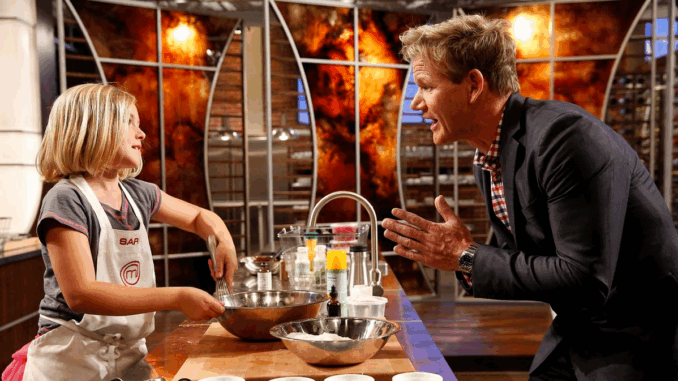
Behind the fiery insults and TV fame lies a wake of trauma few dare to discuss.
Gordon Ramsay’s sharp tongue and volcanic temper are part of what made him a global icon. Shows like Hell’s Kitchen, MasterChef, and Kitchen Nightmares turned his explosive persona into entertainment gold. But what happens when the shouting ends—and the cameras stop rolling?
For years, rumors circulated about the psychological impact Ramsay’s fury had on young chefs, especially contestants under 30 who idolized him. Now, several former participants are stepping forward with chilling stories of panic attacks, therapy, and sleepless nights after appearing on his shows.
One Hell’s Kitchen finalist—who reached the top three—described their post-show experience as “emotional whiplash.” “You go from being screamed at in front of cameras, to isolated in a hotel room with no phone, no support, and no idea how the edit will portray you,” they said. “It messes with your sense of self.”
While Ramsay has often defended his aggressive style as “tough love,” critics argue that his brand of humiliation has crossed a line, especially with younger contestants. “It’s not training—it’s TV trauma,” said a former MasterChef junior contestant’s guardian. “The children would cry off-camera, and some parents weren’t even allowed on set.”
One lesser-known fact: several former Hell’s Kitchen chefs have reported developing anxiety disorders and PTSD symptoms after the show. A few have even quit the culinary world altogether.
A chef from Season 14 revealed, “I lost ten pounds from stress during filming. I started having panic attacks any time someone raised their voice in the kitchen.” When asked why they stayed, they simply answered, “Because we were told this was how success looked.”
Industry insiders admit Ramsay’s behavior—no matter how outrageous—was encouraged by networks hungry for viral moments. “Every time he flipped a pan or slammed someone’s dish into the trash, it was another spike in ratings,” one producer confessed. “No one asked how the chefs felt afterward.”

Even more troubling, several contestants say they were not offered any professional mental health support after filming ended, despite being exposed to intense public scrutiny and pressure. “The comments online were brutal,” said one former MasterChef hopeful. “People tore us apart. And the show never checked in.”
Ramsay, for his part, has occasionally shown a softer side—especially with child contestants—but his legacy of fear remains undeniable. While some chefs say the experience pushed them to greatness, others insist it broke them.
And it’s not just about Ramsay. His methods have influenced an entire generation of TV chefs who now mimic his aggression in their kitchens, mistaking cruelty for excellence.
So what’s the true cost of fame in Gordon Ramsay’s kitchen?
For some, it’s a dream come true.
For others, it’s a nightmare they’re still trying to wake up from.